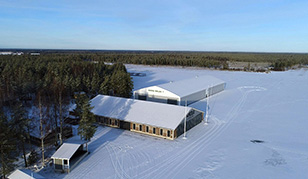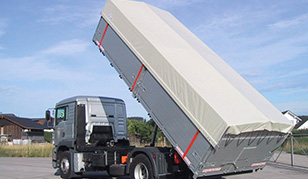
Solid waste management is a crucial aspect of environmental sustainability. From household garbage to industrial waste, proper disposal methods ensure cleaner cities, healthier communities, and reduced pollution. But what exactly is solid waste management, why is it important, and how can individuals and businesses implement it effectively? Let’s explore.
Solid waste management refers to the collection, transportation, treatment, and disposal of solid materials that are no longer useful. These wastes can be biodegradable, recyclable, or hazardous and require different disposal methods.
Municipal Waste – Household garbage, food waste, plastics, paper.
Industrial Waste – Chemicals, metals, manufacturing by-products.
Hazardous Waste – Medical waste, electronic waste (e-waste), batteries.
Agricultural Waste – Crop residues, animal waste.
Proper waste disposal prevents land, water, and air pollution. It reduces greenhouse gas emissions and safeguards ecosystems.
Improper waste disposal can lead to diseases like respiratory infections, waterborne illnesses, and food contamination.
Recycling and reusing materials like plastics, metals, and glass help preserve natural resources and reduce the need for raw material extraction.
A well-managed waste system creates jobs in recycling, composting, and waste collection industries.
(Related: Check out our guide on Sustainable Business Practices to see how companies can integrate waste management into their operations.)
Proper waste sorting ensures efficient recycling and disposal.
Biodegradable waste – Food scraps, garden waste (compostable).
Recyclable waste – Paper, plastic, glass, metal.
Hazardous waste – Batteries, chemicals, medical waste.
The 3Rs principle is key to waste management.
Reduce: Minimize waste production by using eco-friendly products.
Reuse: Repurpose items like glass jars and cloth bags instead of discarding them.
Recycle: Convert waste into new products (e.g., recycling paper into notebooks).
(Explore more on Eco-Friendly Packaging Solutions for businesses.)
Composting converts food scraps and plant waste into nutrient-rich soil for farming and gardening. This method reduces landfill waste and benefits agriculture.
Hazardous materials require special handling and should be disposed of through authorized collection centers.
Many cities use smart waste management solutions like sensor-based bins and AI-powered recycling systems to optimize collection and reduce landfill overflow.
(For further insights, read this United Nations Report on global waste management policies.)
Many individuals and businesses do not prioritize proper waste disposal, leading to increased pollution.
Some countries lack the infrastructure to process recyclable materials efficiently.
Unregulated landfills and illegal dumping sites contribute to soil and water contamination.
Governments and organizations worldwide are adopting circular economy models, where waste is minimized, and materials are continuously reused. Innovations such as biodegradable plastics, waste-to-energy plants, and AI-driven recycling technologies are shaping the future of waste management.
(Learn more about sustainable initiatives from World Bank’s Waste Management Projects.)
The best approach is to segregate waste, compost organic materials, and recycle plastic, paper, and glass.
Improper waste disposal contributes to methane emissions from landfills, which significantly accelerate global warming.
Governments regulate waste collection, invest in recycling infrastructure, and implement waste reduction policies to ensure a cleaner environment.
Solid waste management is not just a government responsibility—it requires participation from individuals, businesses, and industries. By adopting sustainable waste disposal methods, practicing the 3Rs, and leveraging technology, we can create a cleaner, healthier world for future generations.
 Tensile Architecture
Tensile Architecture  Modular
Modular  Protect cover
Protect cover  Ladders
Ladders  Modular
Modular  Modular
Modular  Protect cover
Protect cover  Scafolding
Scafolding 



